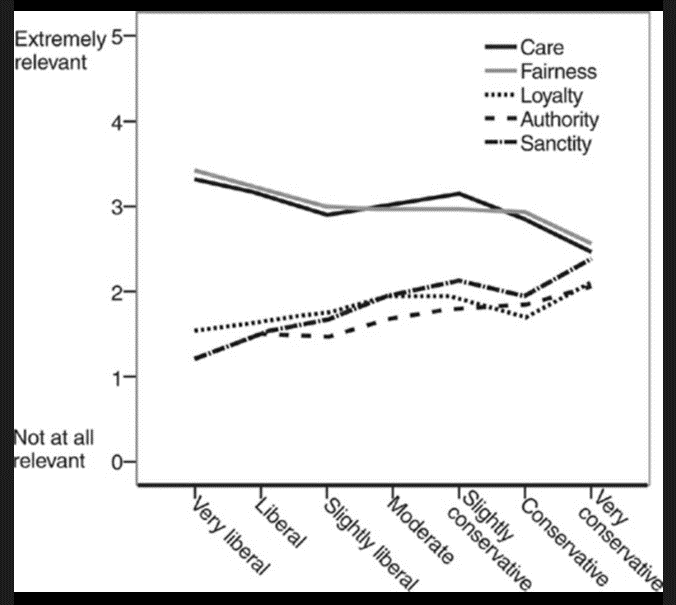The Christian Alternative to Critical Race Theory

Editor’s Note: The conclusion of this article will be published in a second post on or about September 18, 2020.
Critical Theory—in particular, Critical Race Theory—has recently captured the Church’s attention, and in some corners of the Lord’s vineyard it seems, more significantly, Her imagination. (For those unfamiliar with Critical Theory, this article will serve as a necessarily incomplete introduction.) Springing from the same philosophers and theorists (Foucault, Derrida, etc.) who brought us postmodernism, Critical Theory seems to be suddenly taking the whole Western world by storm.
This is an illusion. Though all but Liberal Arts majors would likely be unfamiliar with the Frankfurt School or even the phrase “Critical Theory,” everyone who has received an undergraduate education in the last thirty years has been familiarized with (and in many cases, indoctrinated into) its basic terminology and the categories of meaning by which it makes sense of the world. For instance, for every one of my acquaintance at my own undergraduate alma mater of Penn State, the obligatory “professional writing” requirement for non-English majors was used by the professors as an opportunity to force-feed undergraduates Critical Theory. As an example, a business writing class for music majors taught participants to write personal reflections on books like Stone Butch Blues, a lesbian coming of age story, instead of memos, letters to parents, and departmental requisitions. Even if you think the exposure salutary, it demonstrates the tactics of Critical Theory, which, as its exponents readily affirm, “contains an activist dimension. It tries to not only understand our social situation but to change it, setting out not only to ascertain how society organizes itself along racial lines and hierarchies but to transform it for the better.”[1]
Solid introductions to Critical Theory by both its proponents and opponents are now widely available, and I encourage the reader to consult at least one of each to familiarize themselves with its outlines; otherwise, as commentator Phil Blair demonstrated in his response to a recent Christianity Today article, we may find ourselves employing it unbeknownst to ourselves.
Heresy
Though articles abound that are critical of Critical Theory (hereafter referred to as CT) from a Christian perspective, as mine is, I hope to explore the topic from an at least slightly different perspective; I propose that while CT may properly diagnose some elements of our cultural ills, it necessarily misaddresses these maladies because it is in fact a secularized Christian heresy.
The Critic Is Often Right About What Is Wrong, But He Is Nearly Always Wrong About What Would Be Right.
I want to start by acknowledging what CT—and progressive ideologies more generally—often get right. One of the functions of the people in a society that are typically deemed “liberal,” “left,” or “progressive” is to point out injustices when they accumulate. Any meritocracy (where achievement or talent is rewarded with social and/or economic upward mobility) periodically and predictably accumulates inequity and unfairness at its margins. At a biological level, talent and giftedness are inborn traits that often run in families. Sociologically, families pass on habits and knowledge that maximize (or minimize) inherent capacities for greater achievement and reward. The greatest patrimony that a family passes on in a meritocracy is not their wealth—though that certainly has undeniable advantages—but rather their knowledge and skills in accessing or leveraging the power structures of the meritocracy.
This does not mean that a meritocracy is inherently immoral. (What would we want, a system where lack of talent, industry, and skill is rewarded?) But it does mean that for all the good it may produce, it is a system that can put real people at a real disadvantage in accessing the social and economic rewards deemed legitimate by the value system at its foundation; it is a system that needs a watchdog that calls for course corrections when the process whereby “the rising tide that lifts all boats” creates eddies and riptides that prevent people from weighing anchor and setting sail.
In his book The Righteous Mind, Jonathan Haidt contends that in the same way all the complex flavors of the world’s cuisines are composed of the tongue’s four basic tasting capacities—sweet, sour, salty, and bitter—the great diversity of moralities to which people ascribe are woven from the five basic “cognitive modules” with which we define and evaluate morality and justice. Defined in terms of their antipodes, these modules are care/harm, fairness/cheating, loyalty/betrayal, authority/subversion, and sanctity/degradation. Haidt names this Moral Foundations Theory.
One need not agree with Haidt’s thesis about the origins of these cognitive modules to see their utility as an interpretive grid. In analyzing the political application of the theory, Haidt, who identifies himself as a liberal, discovered that those who measured as the most “liberal” registered highly in the care/harm and fairness/cheating categories but little to not at all in the other three. Though caring and fairness were also the dominant categories for those who registered as the most “conservative,” people with these political leanings showed a near convergence with the other three concerns of loyalty, authority, and sanctity:

What this means is that if it seems that the proponents of Critical Theory are “tone deaf” to some of the moral concerns expressed by other, more “conservative” people, it is because they are. For the “liberal” adherent of CT, the mere presence of inequity is all the proof needed that injustice is occurring. Questions of whether people have demonstrated the social virtues of developing skills (that is, demonstrating loyalty to the system’s values) are largely not considered, or if they are, the need to do so is defined as part of the oppression inherent in “the system.” Likewise, the need to “pay one’s dues,” which recognizes the system’s authority, is construed as more evidence of injustice rather than a period of necessary apprenticeship during which there is predicted inequity between those who have acquired the sought-after skills and resources and those currently acquiring them. Finally, the need to exhibit sustained effort with or without immediate reward—the most sanctified value in a meritocracy—is despised most of all as the mechanism of systemic injustice because, although such effort generally yields overall improvement in the socio-economic position of a given class of people, there is no guarantee in any particular instance that the effort so exerted will result necessarily in equity. The moral concerns of three of the five moral cognitive modules are not only temporarily bracketed to focus analysis on the issue of fairness, for the “liberal,” they quite literally do not register as things worthy of assessment and for the critical theorist, they are merely attempts to obfuscate the real issue, which is measurable equity.
Moreover, the proponent of Critical Theory does not need to provide measurable criteria whereby to evaluate the claims of their analysis. The existence of the inequity natural to and predicted by a system that rewards merit is the prima facie evidence that revolution is needed. Whether the proposed system could actually create the desired equity and whether that equity would be balanced with other moral concerns (everyone living in social and/or economic squalor is, after all, a type of equality) need not be seriously contemplated, because the only value in view is equity, which is defined as fairness that provides the necessary care for everybody.
This is how these critics can be right about what is wrong (that is, in Critical Race Theory, the form of CT most affecting the life of the Church at present, racial inequities), but so wrong about what would put these wrongs right; their theories are not based upon a morality with a complex enough palate, capable of fine enough distinctions.
Eschatology and Anthropology
This is also in part why Critical Theory is a comprehensive worldview; in merely noting inequity, it believes that it has accounted for all the most significant moral variables—the only ones that count. It must then flatten all human experience into the narrow interpretive grid it deems the only valid one.
Four Fundamental Questions
The late Ravi Zacharias helpfully delineated at least four fundamental questions of human life to which any worldview must propose an answer: human origin, meaning, morality, and destiny. Because of the 1925 “Scopes Monkey Trial,” the issue of origins has dominated the intellectual landscape of the Western Church for the last 100 or so years. First, it dominated the popular imagination as “yet another case” of backward religionists resisting reason’s inevitable march of progress in accord with the Enlightenment’s self-narration. (Yes, this was first. Scopes deliberately implicated himself so that a trial would need to be held and Darrow deliberately had the trial played out by a sympathetic urbane media in the court of public opinion as part of his legal strategy.) The attempts to condemn Intelligent Design as veiled religious dogma are the intellectual descendants of that controversy. Secondly, it precipitated a growing crisis within the Church between Fundamentalists and Modernists, who believed a dating of the age of the earth to greater than 7,000 years was congruent with orthodox Biblical interpretation. The inheritors of that dispute are the Young Earth versus Old Earth Creationist debates of today.[2]
“Your theology can never be better than your anthropology,” was one of the favorite axioms my Prophets professor in seminary passed on to us from his mentor. Of course, being self-consciously orthodox, I thought that axiom got it exactly backward; our theology—specifically our Christology and soteriology—necessarily defines our understanding of human nature, so our anthropology can never be better than our theology.
Unfortunately, the Western Church’s obsession with origins has led to a relative neglect of the way our understanding of who Jesus is and what salvation fully entails informs our understanding of what human beings are (our meaning), how we should live (our morality), and our purpose or telos (our destiny). The preaching of Jesus predominantly as life coach, social activist, friend of sinners, prophetic preacher, social reformer or even atoning sacrifice for sinners, has led to the neglect of the consistent preaching of Jesus as the God-Man or Theanthropos, a new species in God’s economy of salvation.[3] “God became man that man might become [like] God,” exulted Irenaeus of Lyons in his second century classic Against Heresies, going on to declare as the soteriological significance of that teaching that “the glory of God is a [hu]man fully alive.”
Great Tradition Christianity proclaims that the ultimate destiny of redeemed humanity is not merely to avoid hell (Jesus as the cosmic get-out-of-jail-free card) or to emulate Jesus as the finest example of a fully self-realized or perfectly moral human person, but rather to become “partakers of the divine nature” (2 Peter 1:4). Through our Sacramental union with Jesus, who was fully God and fully human, by faith in His promises, we are drawn into the perichoretic inner life of the Godhead, the most Holy Trinity. As the Theanthropos, Jesus is the “firstborn among many brothers” (Romans 8:29), not the only-born to be admired and worshipped, but whose life remains fundamentally distant from our own.
This teaching about the implications of salvation through Christ for our destiny as human beings thoroughly conditions and shapes all other elements of our theology. In other words, remembering the fullness of our destiny as human beings in Christ has far more impact on our understanding of what is the meaning of human life and the morality by which it is to be lived than our understanding of our origins.
[1] Richard Delgado and Jean Stefancic. Critical Race Theory: An Introduction. (New York: New York University Press, 2017), page 8.
[2] If you speak the first article of the Nicene or Apostles’ Creed without crossing your fingers, you are a creationist of one stripe or the other; it is important that non-fundamentalist Christians be absolutely clear on this point and think through the consequences of that position as distinct from a functional Deism.
[3] Justification by grace through faith—forensic justification—may indeed be the doctrine upon which the Church stands or falls as Martin Luther declared, but it was never meant to be preached denuded of the very Christology that makes it so powerful and poignant.



 need to “go out and be separate.” If we hope to not see our frogs boiled in the way other communions have unfortunately experienced, we will need to be intentionally countercultural. Our catechesis and our sermons will need to be apologetic in tone, whether we are apologists by vocation or not. We will need to listen carefully to a world that hates us so we may build bridges to their linguistics worlds of meaning and so that we can dismantle Trojan Horses meant to destroy Christianity and its necessarily attendant, coherent worldview from within.
need to “go out and be separate.” If we hope to not see our frogs boiled in the way other communions have unfortunately experienced, we will need to be intentionally countercultural. Our catechesis and our sermons will need to be apologetic in tone, whether we are apologists by vocation or not. We will need to listen carefully to a world that hates us so we may build bridges to their linguistics worlds of meaning and so that we can dismantle Trojan Horses meant to destroy Christianity and its necessarily attendant, coherent worldview from within.




